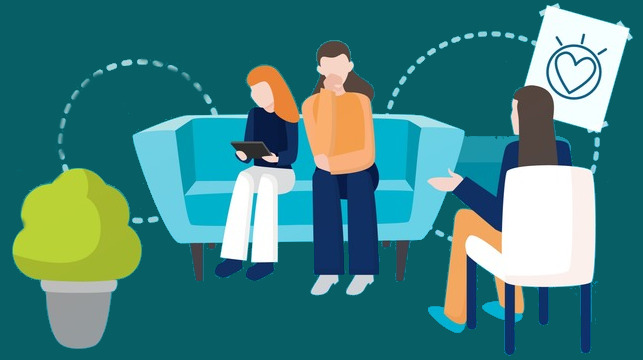Food, Clothing, Shelter are the basic necessities of human life. Modern Day needs have added necessity to basic needs. Now, if you are thinking of social media or the internet regarding the addition of necessity then I won’t say you are completely right, but the added necessity has been a reason for the same.
Any guesses regarding the new necessity addition? No? Okay, I will tell it straight away. It’s counseling. The modern-day lifestyle has forced this necessity on humans. Life is highly hectic and extremely competitive nowadays. People are tired and fed up of such changes but are unable to find any sort of solution.
The competitiveness has lead to restlessness. The restlessness causes stress, depression, anxiety and many more mental health disorders. Irrespective of religion, caste, sex, profession, has been suffering such disorders.
To get rid of these disorders and live a happier, joyful life, we all need a Counselor.
There are many misconceptions and horrible misunderstandings regarding both the counselor and attending counseling sessions. People in India think, attending counseling sessions is a sign of an ill, mad, psychic, and mentally retarded person. But, they don’t understand is Counselors have become a necessary part of our life for the betterment.
Some require a Psychologist who is trained to diagnose and treat mental health issues.
A person trained to give guidance on personal, social, or psychological problems is known as a counselor. Counselor is the one who discusses the client’s emotional issues and works with them to design the best outcome they want, not what they think you need.
Research tells us it is incredibly useful to have a session or two to discuss any feelings of being overwhelmed, anxious or lost. Counseling gives you an opportunity to open up about your thoughts, feelings, and circumstances in a confidential, non-judgmental setting.
When do you need a Counselor?
- If you are feeling overwhelmed in any area of your life, if you feel you have lost your way, things are over becoming insurmountable to manage.
- If you are feeling moody or agitated.
- If you get quickly angry, anxious, furious.
- When you start feeling depressed, stressed, tense, loss of hope and interest in every situation even in the things you enjoyed a lot before.
- When you go through major changes in life. These changes may include loss of a loved one; break up, getting fired from a job, loss in business, etc. A person takes time to adopt such changes.
- Insomnia- When sleeping gets difficult. You use to sleep 7-8 hours a night regularly and all of a sudden feel loss of sleep. Maybe the reasons include worry, stress, and tension.
- Self-harm thoughts- These thoughts include negativity, frustration, and irritation. Feelings like “I am of no use in life,” “I am the unluckiest person on the planet,” “I can’t do anything,” etc. Such thoughts affect adversely your life.
- When things, incidents happening around you or anywhere in the world have a negative impact on life. These things include witnessing a natural calamity, observation of criminal activities. Riots can also have an unpleasant effect on your life.
So many reasons why having a session or two with a Professional Counselor can help your thoughts improve, benefit you in your daily life and support you in any transition or problem. Strenuous situations are an inevitable part of every individual, but how we deal with them is important.
Contact a Counselor today and alleviate the burden and weight you continue to carry around. There is a better way, time to lighten your load, resolve issues and more on more prepared, stronger and with a clearer mind.
Counselors take your ship of happiness to the shore through the sea of grueling situations. Life is certainly beautiful when you attend counseling sessions.
Potential Advantages of Counseling –
- Improved communication and interpersonal skills
- Greater self-acceptance and self-esteem
- Ability to change self-defeating behaviors/habits
- Better expression and management of emotions, including anger
- Relief from depression, anxiety or other mental health conditions
- Increased confidence and decision-making skills
- Ability to manage stress effectively
- Improved problem-solving and conflict resolution abilities








